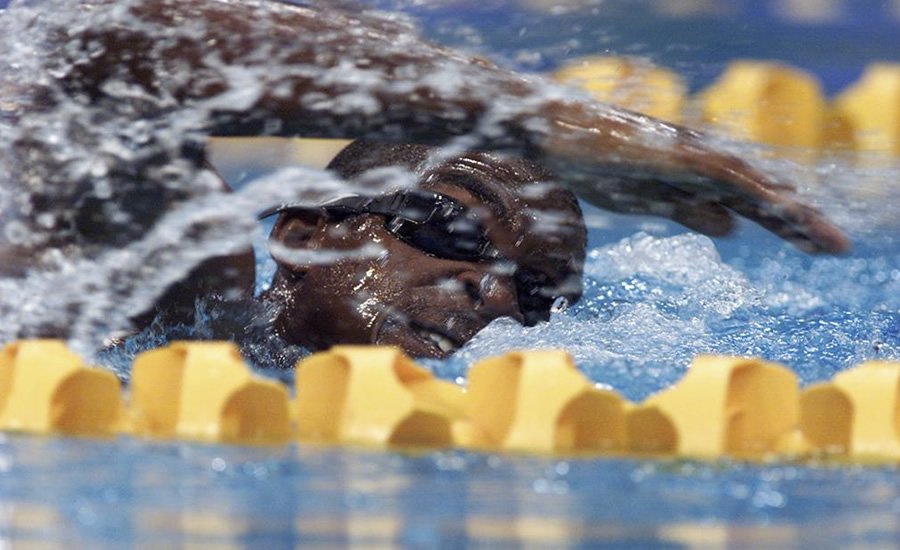
At the Sydney 2000 Olympic Games, while the world applauded records and impossible marks, in a corner of the Olympic pool a different story took place, one that was measured not in medals but in courage. There emerged, unexpectedly, the figure of Eric Moussambani, an unknown young man from Equatorial Guinea who had learned to swim just a few months earlier.
His preparation was far from any professional standard. In his country, where Olympic swimming pools were non-existent, his first attempts at swimming took place in the sea, guided by the patience of a fisherman. Later, he got permission to train in a hotel pool in Malabo, barely twelve metres long, where he could only practice in the early hours of the morning, avoiding overlapping with guests.
Through an Olympic programme designed to give visibility to developing countries, Eric won his place. So he arrived in Australia without ever having felt the vastness of a fifty-metre pool. It was the first time he had ever stepped on a stage of such magnitude, surrounded by cameras, judges and spectators from all over the world.
On the day of his debut in the 100m freestyle, fate had another unexpected twist in store for him: his two rivals were disqualified for false starts, leaving him alone in front of the water. No opponents, no references, no competition other than his own fear.
At the sound of the start, Moussambani threw himself into the race. Each stroke was a titanic effort, an open struggle against fatigue. The last few metres became an agony for all to see; the crowd, who at first watched in surprise, soon began to cheer him on with a standing ovation, accompanying his battle to the very last touch of the wall. His time was the slowest ever recorded in the Olympic history of the event: one minute and fifty-two seconds. But that stopwatch did not measure the essential.
When approached by journalists after the race, his response was simple and disarming: he had wanted to travel and experience it. But his gesture was much more than a journey. It became a symbol of perseverance, of courage in the face of ridicule, of dedication with no guarantee of success. Eric's story travelled the world and struck a chord.
The echo of that dive resonated in Equatorial Guinea. Olympic swimming pools were built, the country invested in sports facilities, and Moussambani, over time, not only perfected his style and records - even dipping under a minute - but became coach and president of the national swimming federation.
Today, his name continues to remind us that it is not always the one who arrives first who wins, but the one who has the courage to stand at the starting line, even when the challenge seems insurmountable. That sometimes the greatest triumph is simply daring.
Source: en.wikipedia.org, as.com, @erika.samaniego._
